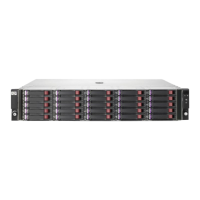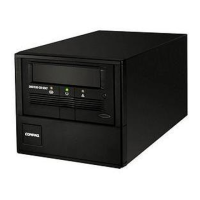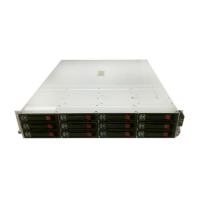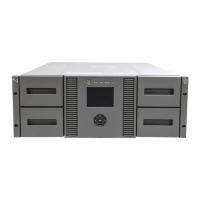D Log messages
This appendix provides details about messages logged to a file. The message logs are persistent
because they are maintained across router power cycles and reboots. Information in the following
tables is organized as follows:
• The ID column specifies the message identification numbers in ascending order.
• The Log Message column indicates the message text displayed in the MPX200 CLI. Note that:
• Log messages for the iSCSI driver module are common to both iSCSI ports. Log messages be-
ginning with #0 denote iSCSI port 1 (GE1) and log messages beginning with #1 denote iSCSI
port 2 (GE2).
• Log messages for the FC driver module are common to both FC ports. Log messages beginning
with #0 denote FC port 1 (FC1) and log messages beginning with #1 denote FC port 2 (FC2).
• The Module Type column specifies the message reporting module, where:
• App = Application module (iSCSI, FCIP, or DMS)
• FC = FC driver
• iSCSI = iSCSI driver
• System = System module
• TOE = TCP/IP offload engine module
• User = User module (iSCSI, FCIP, or DMS)
• The Msg. Type column specifies the log message type, where:
• Error = Error log message
• Fatal = Fatal log message
• Info = Informational log message
• The Description column provides additional information about the log message.
Table 27 MPX200 log messages
Description
Msg
type
Mod-
ule
type
Log messageID
NULL doorbell routine for unloaded drivers.
When a driver is unloaded, the doorbell
routine is redirected to this NULL routine.
ErrorApp
QLBA_NullDoorbell: driver
unloaded, port disabled
40967
Processing unsupported ordered tag task
management command.
ErrorApp
QLBA_ProcessTrb: Pro-
cessing unsupported
ordered tag command
40996
Processing unsupported head-of-queue task
management command.
ErrorApp
QLBA_ProcessTrb: Pro-
cessing unsupported head
of queue tag command
41004
MPX200 Multifunction Router 209
